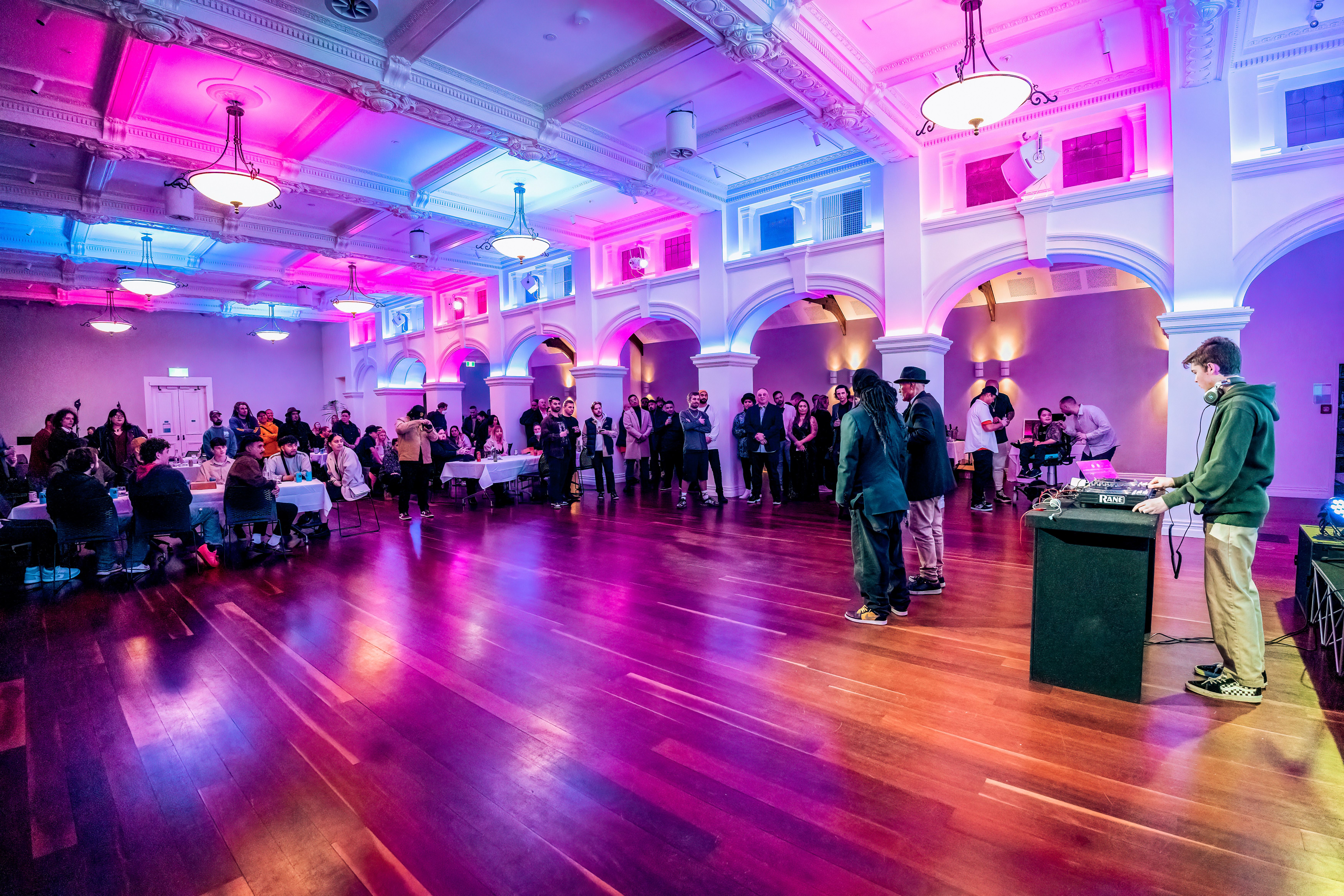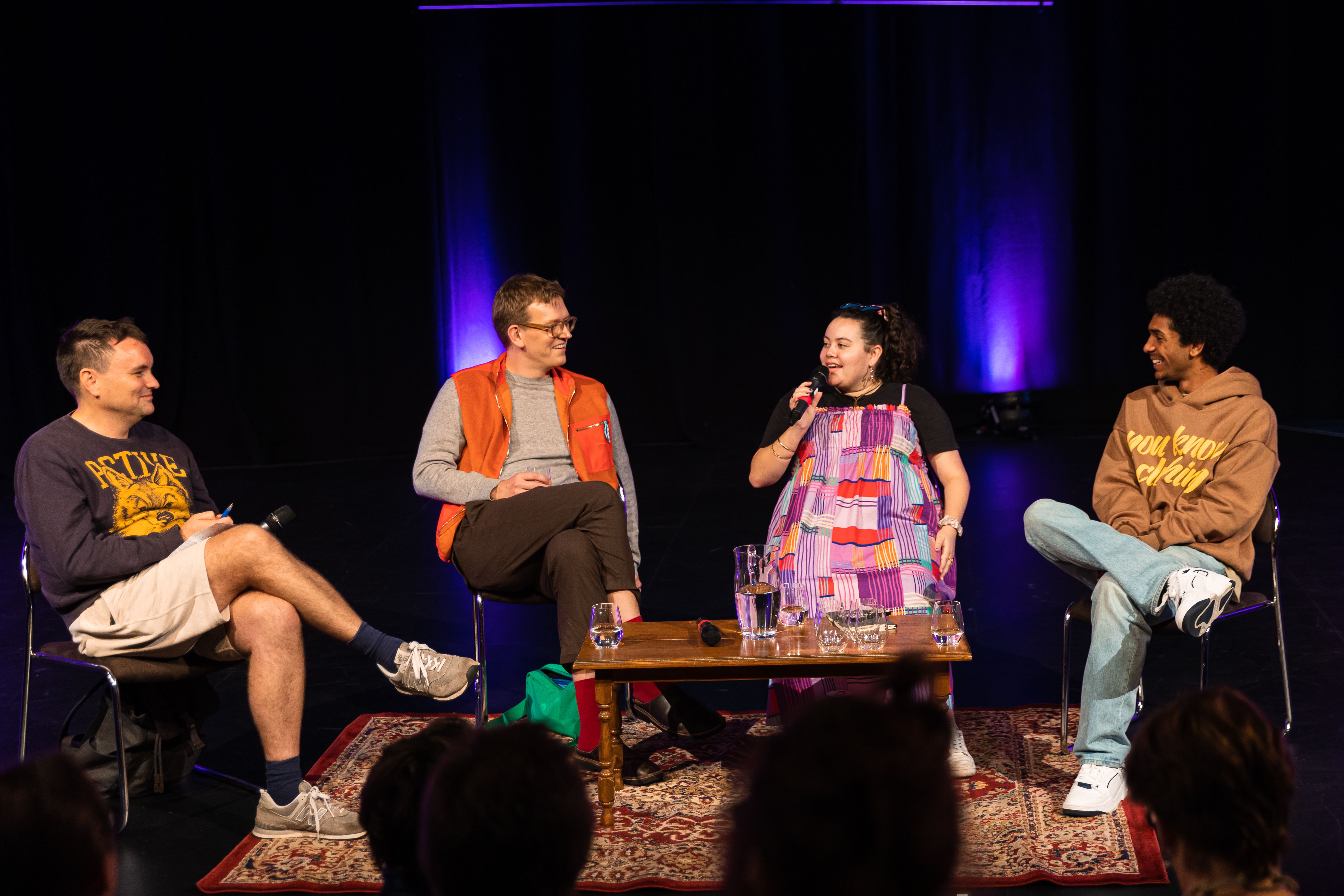Need for Online Skills Highlighted Post-Pandemic
The findings of a report from Toi Mai into embracing digital transformation involved members of the creative sector and offer an important insight into how to turn obstacles into opportunities.
Written by

Necessity is still the mother of invention.
That’s the key take-out from a report by Toi Mai - highlighting the creative sector's resilience during the pandemic.
Released late last year, ‘Embracing Digital Transformation’ was funded by the Tertiary Education Commission to help support industry recovery after lockdown.
The report was carried out by Toi Mai, the Work Development Councils (WDC) for the creative, cultural, recreation and technology sectors. Its kaupapa is to ensure institutions within the vocational education system (think polytechnics and other career-driven entities) adapt to meet industry needs.
Drawing from interviews with comedians, dance instructors and creators/practitioners involved in Kapa Haka and Polyfest, the report sheds fresh light on how lockdowns and event restrictions completely torpedoed 'business as usual' and forced the creative sector to move their practices online.
No longer able to connect with audiences in person - platforms like Instagram, TikTok and Zoom became the new comedy clubs, dance studios or rehearsal spaces.
More than a postmortem of the pandemic, the report offers invaluable insight into the experiences of those who struggled and those who were able to expand their online practice.
We took a look at the lessons learned across dance instruction, Kapa Haka and Polyfest, and comedy.

A delicate dance
The impact of COVID-19 continues to be felt by dance instructors, with many dance studios still having fewer students than they did prior to the pandemic.
Those involved in dance instruction (mainly private studio owners) who were interviewed represent a range of dance styles - including traditional dance studios, cultural dance, classical and contemporary dance forms, as well as dance as therapy or wellbeing.
Practitioners noted pivoting to an online delivery model was a necessity to retain their clients and ensure there was a business to return to, once in-person delivery was possible again.
Due to the first lockdown happening during term time, many instructors with young students went from an entirely in-person model to an entirely on-line model practically overnight. This meant taking time to learn how to operate online platforms and investing money into platform subscriptions and data boosts.
On top of that - managing young staff who were contending with unreliable internet connections and lack of space also proved challenging.
Within the dance community canvassed for the report, only one studio had successfully worked out how to not only maintain their normal fees, but successfully charge more during this time.
Technology enables connection for Māori & Pacifica
With in-person gatherings restricted, Kapa Haka festivals and events followed the inevitable fate of so many creative outlets - postponed and eventually cancelled as lockdowns rolled on.
Behind the scenes, dancers and facilitators found online rehearsals an inadequate substitute for in-person practices in the lead up to events.
Without regular face-to-face contact, whakawhanaungatanga (the process of establishing relationships) was severely impacted and many practitioners simply felt that Kapa Haka needs to be in person.
Despite grappling with issues of wi-fi connection and device availability, Zoom meetings facilitated connection with whānau when rōpū moved rehearsals online.
Tama Kirikiri, Toi Mai Poumatua (Te Whānau-ā-Apanui, Ngāti Konohi, Ngāti Rākaipaaka, Ngāti Kahungunu, Kāi Tahu) explains.
“Māori and Pacific communities don’t exist in western nuclear family ‘bubbles’. The whānau and aiga are integral to both the individual and collective success.
“As such, their need to connect to each other through cultural expression needed to be sustained throughout COVID.
“Technology was a fantastic enabler of this.”
Of significant note for the sector, survey respondents also said they weren’t able to find a platform made for singing or dancing in mind, with internet lag (a frustration familiar to many of us) making online rehearsals challenging.

No laughing matter
On a more positive foot, comics found building their online profile could be both empowering and lucrative in the long term - resulting in increased ticket sales and income through marketing and sponsorship.
Social media savvy comedians like Chris Parker built an intimate connection with audiences by lampooning the weird cultural moments of lockdown in seemingly ad-hoc (though in reality well considered) videos.
But not all comics were able to thrive online. Some felt that a lack of proficiency with social media and other platforms hindered their ability to create content.
Comics also talked about the difficulty in chasing the zeitgeist when platform rules can change, algorithms require understanding, and trends come and go.
Something that rang true for many is that a ‘one size fits all’ approach to social media didn’t work. With each platform having its own changing and often unwritten best practices and quirks, being intentional and making platform specific content is hugely important.
What’s next?
Over the last three years, COVID-19 has provided the impetus for creatives to upgrade software, implement new systems, or learn and start using new online tools.
Whether that’s meant building a new audience or simply maintaining their income, the ability to pivot has proven crucial - and will be a crucial tool in any creative's kete for the future.
“Digital skills can help grow communities and develop audiences, even if the end goal is to bring people to a face-to-face event," underlines Claire Robinson, Toi Mai CEO.
“As we re-write qualifications for the future workforce, we will advocate for digital skills to be a critical part of all vocational training.”
Already the report has helped spark a series of 'for industry, by industry’ hui bringing together comedians, producers and technicians from the comedy sector, to share knowledge and build digital capability.
Next week we’ll take a closer look at the impacts and learnings for Aotearoa comedy - with insights and commentary from some of the biggest names in the industry.
Written in partnership with Toi Mai - see the full ‘Embracing Digital Transformation’ report here.